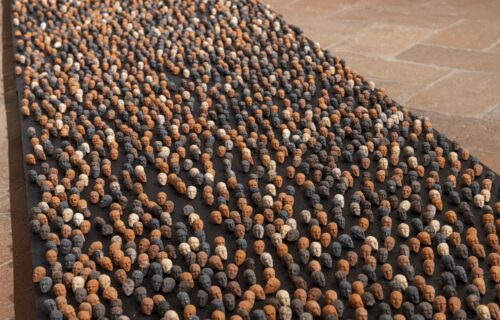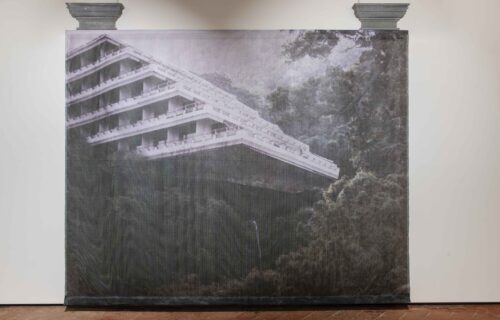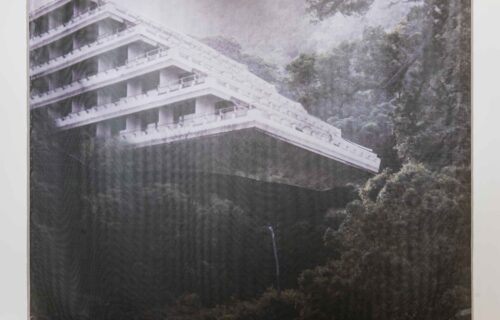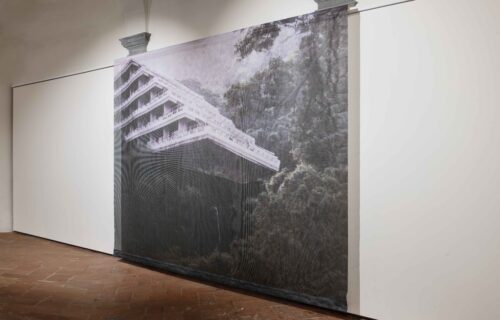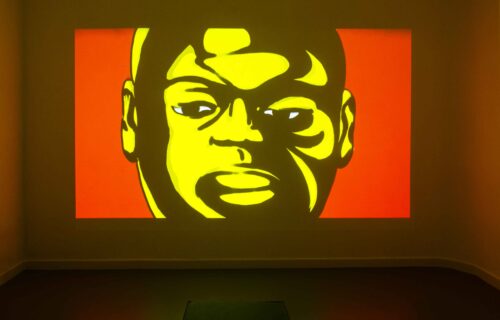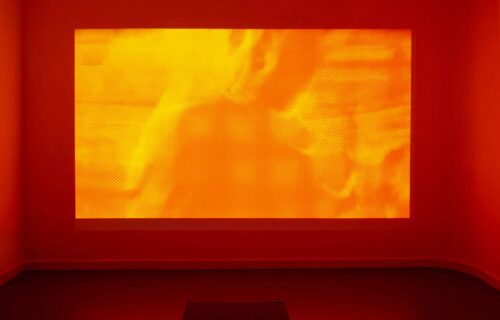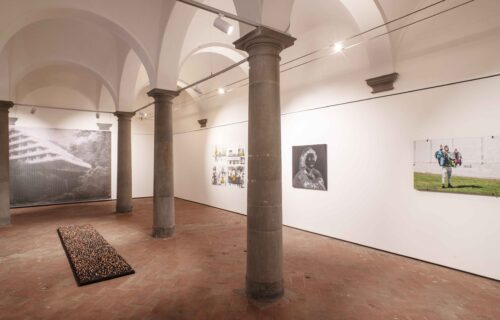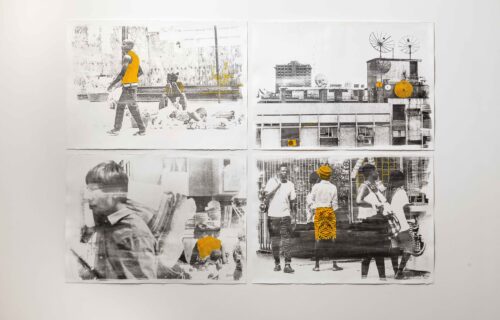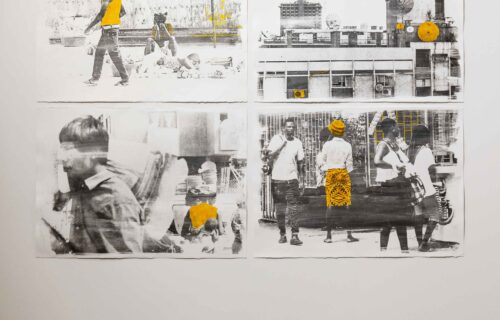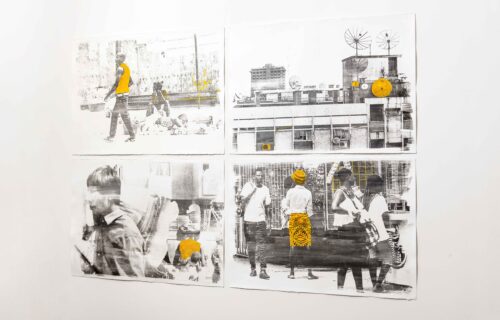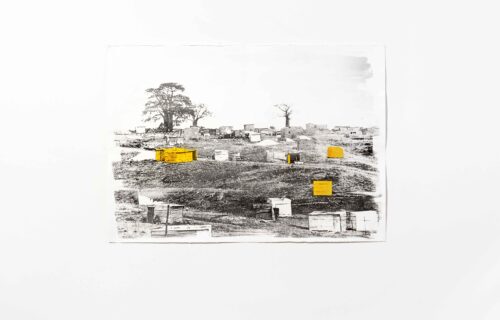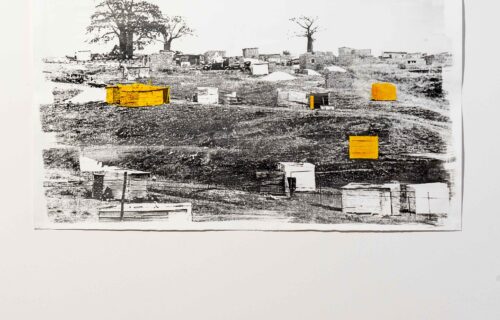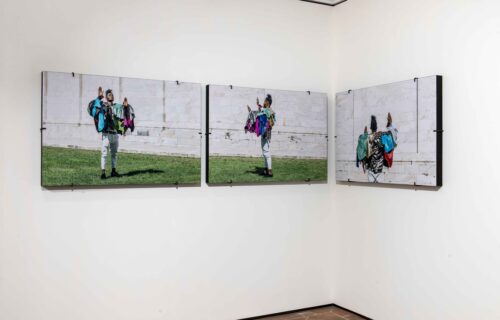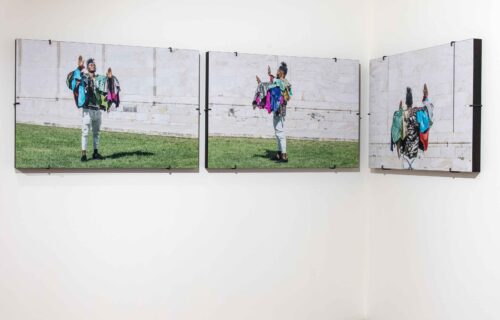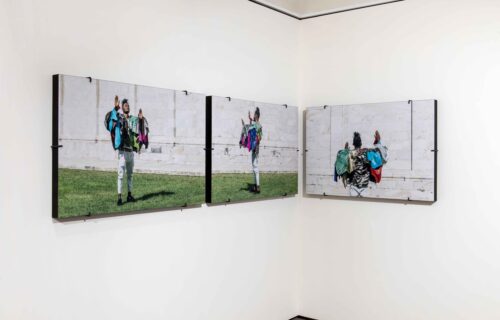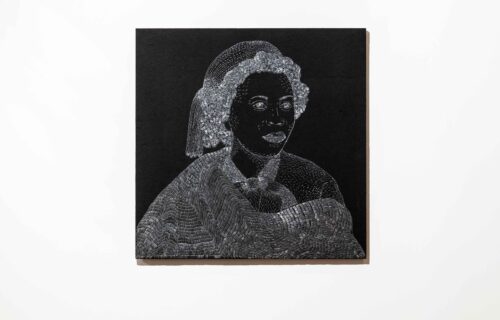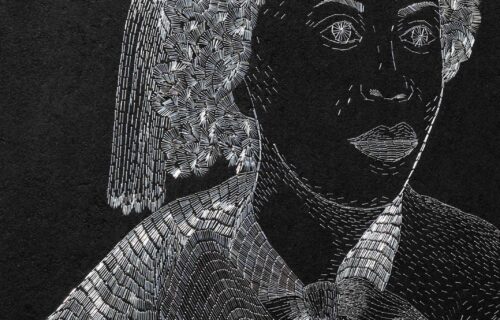Sammy Baloji (Democratic Republic of the Congo) | A collaboration with Villa Medici (Rome)
Sammy Baloji was born in 1978 in Lubumbashi, in the mineral-rich Katanga province of Democratic Republic of Congo. He studied Computer and Information Sciences and Communication at the University of Lubumbashi. With a borrowed camera, he began photographing scenes as sources for his cartoons. He soon enrolled in photography courses in DRC, and continued with photography and video at Ecole Supérieure des Arts Décoratifs, in Strasbourg, France, receiving formal training in photography from Simon Mukunday and Marie- Françoise Plissart. Raised in Lubumbashi, Baloji was sensitized to the colonial history and the postcolonial decline of the once-prosperous mining region of DRC, which Chinese and Western companies exploit today. Colliding reality and representation, his multi-media installations expose past tensions and present entanglements. He mines the archive, traces social history in architecture and landscape, and probes the body as site of memory and witness to operations of power.
Baloji has had solo exhibitions at: Framer|Framed, Amsterdam, Musée du quai Branly, Paris; MuZee, Oostende, Belgium; Royal Museum for Central Africa, Tervuren; and Museum for African Art, New York. The solo show Sammy Baloji & Filip De Boeck — Urban Now: City Life in Congo opened in May 2016 at WIELS, Contemporary Art Center Brussels, traveled to Open Society Foundation, New York, The Power Plant, Toronto, Canada; and Galerias Municipais/EGEAC in Lisbon. Sammy Baloji featured in documenta 14, Kassel, Germany, and Athens, Greece, directed by Adam Szymczyk, and curated by Bonaventure Soh Bejeng Ndikung. In In 2016 the 56th International Exhibition of the Venice Biennale, and “Personne et les autres”, curated by Katrina Gregos, the “All the World’s Future’s” curated by Okwui Enwezor.









